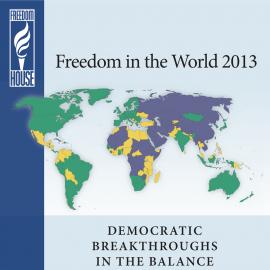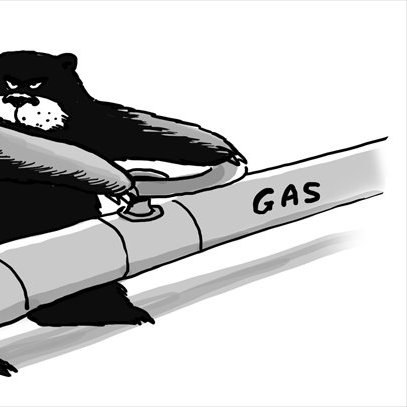“For Gerard Depardieu, a Russian passport is a matter of financial convenience…”
Many scholars would say that borders are the most dynamic element of the globalized world order. But in our complex world, and in our everyday lives, there is far more to the concept than geographic citizenship. Saskia Sassen, Professor at Columbia University and a keynote speaker at a recent conference in Berlin titled Relocating Borders, said that the notion of borders go far beyond issues of sovereignty: “When territory evades conventional meanings, it becomes institutionally mobile and nomadic." Prisons, she said for example, are institutions that mold and sustain societal borders. And banks transferring funds outside a country, or airlines checking passengers’ documents, perform bordering functions. The “Occupy” movements, according to Sassen, are also about reshaping symbolic territories within societies all across the globe.
Sassen called on us all to think more creatively about the detachment of the institution of citizenship from its territorial location. Indeed, citizenship sometimes ceases to signify allegiance to a specific polity. For Gerard Depardieu, a Russian passport is a matter of financial convenience, while for Moldovans, Romanian passports are practical tools for visa-free travel in Europe.
Temporal borders that divide one historical epoch from another also deserve attention. What we see in today’s Russia is the blurring of temporal lines that distinguish “modern” Russia from its Communist predecessor. Yet Putinism more and more resembles the Soviet regime—intrinsically weak and insecure, intolerant of the West, and imposing a top-down variation of societal patriotism.
We have also seen some interesting new trends, such as land acquisitions, as when China bought massive tracts for palm-oil plantations in Congo and Zambia. Or when Morgan Stanley bought 40,000 hectares of agricultural land in Ukraine. Gulf Investors plans to acquire the Russian Pava company, giving them access to 500,000 hectares in Russia. Some Russian commentators assume that ski resort projects in the North Caucasus are meant to de-facto transfer lucrative strips of mountain territory to the control of local ruling clans.
I tend to believe that border experiences and practices can be more convincingly uncovered as a variety of cultural phenomena. For example, field studies reveal that numerous Russian-speakers in the post-Soviet neighborhood differentiate themselves culturally from Russia, which challenges the key premise of the Kremlin-promoted “Russian world“ concept.
For example, even though most residents of Narva speak Russian, they define themselves as Estonian (93% of the population of Narva are Russian-speakers). Russian-speaking populations in countries like Finland or France are alienated en masse from Russia as well.
The Kremlin lacks proper cognizance of how Russian-speaking communities are organized and to what extent they are integrated into local social and cultural frameworks. There is almost no research in this field. The flows of migration from Russia to the West make the search for a common cultural framework, and to prevent their cultural dissociation from Russia, an extremely hard task.
Borders are certainly related to identities. Of course, many speak of a “wider Europe” yet this concept should not conceal deep cultural and normative dissimilarities within it. Even among EU member states there is a wide variety of cross-border practices: for example, the Finnish–Russian border management regime significantly differs from the one between Russia and the Baltic states.
Differences between EU and non-EU states are meaningful, and sometimes they bring paradoxical effects. “You have to be outside of Europe to desire Europe – an attitude which insiders themselves may be losing,” a Danish colleague claimed during the conference. In a more practical sense, this means that enthusiasm for Europe as a normative ideal is sometimes higher in countries like Croatia or Moldova than within the EU itself.
At one of the conference panels we discussed representations of the Finnish–Russian border in novels by Arvi Perttu, a Finnish writer born in Karelia. Famed architect and designer Daniel Libeskind eloquently unveiled how urban landscapes can create invisible yet forceful social and cultural boundaries within a megapolis.
Supporting the pros of comprehending borderlines from cultural angles, it just happened that a day before the conference I watched a new American movie titled “The Loneliest Planet.” The plot featured a young Spanish-American couple spending their vacation in the country of Georgia and trying to make fun of its explicitly non-Western natural and social environment. The Caucasus is displayed not only as an inherently dangerous place, but also as a radical alterity ("otherness") that becomes instrumental for rediscovering the Western Self. It is a series of encounters with local Others than made the couple rethink their marital relations—especially after a flirtation between the young lady and a Georgian guide who himself experienced a traumatic experience of going to Europe where his former wife and son died in an auto accident. The external border that separates Georgia from the West became internal—yet doesn’t the same happen when our encounters with something “alien” split us from the inside?
As the movie and the conference revealed, often it is crucial to cross a metaphysical border—experience the Other—in order to better understand the Self
Andrey Makarychev is a Guest Professor at the Free University of Berlin, blogging for PONARS Eurasia on the Russia-EU neighborhood.











